Please check back frequently, as this is an evolving situation and guidelines may change
In response to the construction industry’s questions regarding the COVID-19 outbreak, the following are steps workers should be taking now:
• Don’t go to work if you are feeling sick.
• Don’t go to work if you have a fever.
• Don’t go to work if you have a cough or shortness of breath.
• Avoid contact with sick people.
• Don’t shake hands when greeting others.
• Avoid large gatherings or meetings of 10 people or more.
• Stay at least 6 feet away from others on job sites and in gatherings, meetings, and training sessions.
• Cover your mouth and nose with tissues if you cough or sneeze or do so into your elbow.
• Avoid touching your eyes, nose, or mouth with unwashed hands.
• Clean your hands often by washing them with soap and water for at least 20 seconds. When hand washing isn’t available, use an alcohol-based hand sanitizer with greater than 60% ethanol or 70% isopropanol. Soap and water should be used if hands are visibly dirty.
• Clean your hands frequently, including before and after going to the bathroom, before eating, and after coughing, sneezing, or blowing your nose.
• Bring food and water bottles from home to the job site and do not share.
• Drive to worksites or parking areas by yourself—no passengers or carpooling.
• Wipe down interiors and door handles of machines or construction vehicles, and the handles of equipment and tools that are shared, with disinfectant prior to entering.
CDC has issued disinfection recommendations here: https://www.cdc.gov/coronavirus/2019-ncov/community/organizations/cleaningdisinfection.html.
Construction industry employers should develop a comprehensive COVID-19 exposure control plan, which includes control measures, symptom checking, social distancing, hygiene and decontamination procedures, and training. Training should cover the hazards and control measures including social distancing, handwashing facilities on site, and how high-touch surfaces are disinfected. An exposure control plan and the following recommendations should be followed before any onsite worker is found to have COVID-19 because many people with COVID-19 are asymptomatic and can potentially spread disease.
Recommendations:
• Designate a site-specific COVID-19 officer at every job site.
• Plan for office staff to have the ability to work from home.
• Conduct a Safety Stand-Down/toolbox talk/tailgate training on all job sites to explain the protective measures in place for all workers. Keep social distancing at all gatherings.
• Ask workers to self-identify symptoms of fever, coughing, or shortness of breath each day, before the shift, mid-shift, and at home. If thermometers are used on the job, they should be ‘no-touch’ or ‘no-contact.’
• Create policies that encourage workers to stay at home or leave the worksite when feeling sick or when they have been in close contact with a confirmed positive case. If someone goes home from the site, the area where that person worked should be immediately disinfected.
• Create at least 6 feet of space between workers by staging/staggering crews. Modify work schedules to stagger work, provide alternating workdays or extra shifts to reduce the total number of employees on a job site at any given time.
• Workers working near or with others in close quarters, such as confined space work, should wear a NIOSH-approved respirator certified as N95 or higher implemented under a full respiratory protection program.
• Identify choke points where workers are forced to stand together, such as hallways, hoists and elevators, break areas, and buses, and control them so social distancing is maintained.
• Minimize interactions when picking up or delivering equipment or materials. Organize the placement of materials to minimize movement on the worksite.
• Provide soap and running water whenever possible on all job sites for frequent handwashing. Provide alcohol-based hand sanitizers with greater than 60% ethanol or 70% isopropanol as a backup only if providing running water is impossible. Disclose reasons why running water is not possible to workers.
Workers should be encouraged to leave their workstations to wash their hands before and after going to the bathroom, before eating, and after coughing, sneezing, or blowing their nose.
• Clean and disinfect high-touch surfaces on job sites and in offices—such as shared tools, machines, vehicles and other equipment, handrails, doorknobs, and portable toilets—frequently, per CDC guidelines: https://www.cdc.gov/coronavirus/2019-ncov/community/organizations/cleaning-disinfection.html
• Make disinfectants available to workers throughout the worksite and ensure supplies are frequently replenished.
• If you work in healthcare facilities, train your workers in Infection Control Risk Assessment (ICRA). For information on CPWR’s ICRA training program, visit: https://www.cpwr.com/training/infection-control-risk-assessment-icra
Special guidance for older workers and people with underlying health conditions:
• Older adults and those with underlying health conditions like heart disease, diabetes, and lung disease and those with compromised immune systems (such as lupus, rheumatoid arthritis, cancer therapy) are more at risk of becoming very sick from COVID-19.
CDC has additional recommendations for these individuals here:
https://www.cdc.gov/coronavirus/2019-ncov/specific-groups/high-risk-complications.html.
Additional links from our federal government partners:
• OSHA: https://www.osha.gov/SLTC/covid-19/
• NIOSH: https://www.cdc.gov/niosh/emres/2019_ncov.html
• CDC: https://www.cdc.gov/coronavirus/2019-ncov/index.html
• CDC for Employers about getting their businesses ready:
https://www.cdc.gov/coronavirus/2019-ncov/specific-groups/guidance-business-response.html
Please be aware that people are vulnerable in these uncertain times. If a colleague or coworker needs mental health or substance use care, they should contact their member assistance program, employee assistance program, or the National Suicide Prevention Lifeline: 1-800-273-TALK (8255)
https://suicidepreventionlifeline.org



